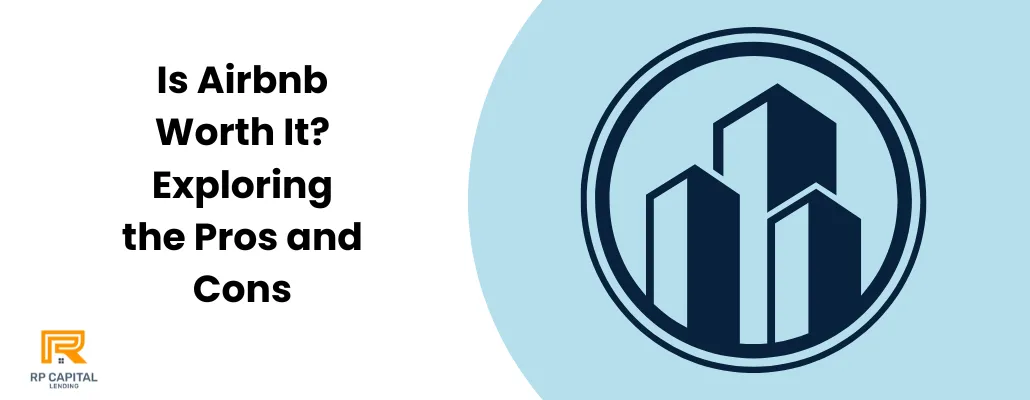Blog

Is Airbnb Worth It? Exploring the Pros and Cons
Is Airbnb worth it? With the rise of home-sharing platforms, this question has crossed the minds of many potential hosts and travelers.
Whether you're looking to earn extra income or find unique accommodations, the decision to use Airbnb involves careful consideration.
In this blog, we will explore the benefits and drawbacks to help you make an informed choice.
What is Airbnb?
Airbnb is an online marketplace that connects people looking to rent out their homes with those seeking accommodations. Founded in 2008, Airbnb offers a platform where hosts can list their properties—ranging from single rooms to entire houses—for short-term rentals. The service is designed to provide travelers with unique lodging options that often differ from traditional hotels.
Key Features of Airbnb
Diverse Accommodations: Airbnb offers a wide range of properties, including apartments, houses, treehouses, boats, and even castles. This diversity allows travelers to find unique and interesting places to stay.
Flexibility for Hosts: Homeowners and renters can list their properties on Airbnb, deciding when and how often they want to rent them out. This flexibility can turn unused space into a source of income.
Authentic Local Experiences: Staying in an Airbnb can provide a more authentic and personalized travel experience. Guests often have the opportunity to live like locals and explore neighborhoods that are off the beaten path.
Community and Trust: Airbnb fosters a community of hosts and guests through its review system. Both hosts and guests leave reviews after each stay, helping to build trust and ensure quality experiences.
Support and Safety: Airbnb offers various support mechanisms, including customer service and insurance coverage, to protect both hosts and guests. The platform also provides resources and guidelines to enhance the hosting and traveling experience.
The Pros of Using Airbnb
Income Potential: Renting out your property can provide a steady stream of income. Hosts often find that the earnings from short-term rentals surpass those of long-term leases.
Flexibility: Airbnb allows you to rent your property on your terms. You can choose when to list your home and have control over your booking calendar.
Diverse Accommodations: Travelers can find unique lodging options that are often more affordable than traditional hotels. From cozy cottages to luxurious villas, the variety is endless.
Local Experience: Staying in an Airbnb often provides a more authentic travel experience. Guests can live like locals and explore neighborhoods that tourists might miss.
Host Support: Airbnb offers extensive support for hosts, including insurance coverage, customer service, and resources to improve the hosting experience.
The Cons of Using Airbnb
Regulatory Challenges: Some cities have strict regulations on short-term rentals, which can limit your ability to list your property on Airbnb.
Property Management: Managing an Airbnb requires time and effort. Cleaning, maintenance, and guest communication can be demanding tasks.
Market Saturation: In popular areas, the competition among Airbnb listings can be fierce, making it harder to attract bookings.
Potential Risks: Hosting strangers in your home can come with risks, including property damage and theft. While Airbnb offers protections, they may not cover all scenarios.
Fluctuating Income: Unlike long-term rentals, the income from Airbnb can be unpredictable, depending on the season and demand.
FAQs
1. Is it profitable to rent my property on Airbnb?
Yes, many hosts find Airbnb to be profitable, especially in high-demand areas. However, profitability depends on factors like location, property type, and local regulations.
2. How much time does managing an Airbnb property take?
Managing an Airbnb can be time-consuming, involving tasks like cleaning, guest communication, and maintenance. Some hosts hire property managers to handle these responsibilities.
3. What are the legal requirements for listing my property on Airbnb?
Legal requirements vary by location. It's important to check local laws and regulations regarding short-term rentals to ensure compliance.
4. How can I attract more bookings for my Airbnb listing?
High-quality photos, detailed descriptions, competitive pricing, and positive reviews can help attract more bookings. Providing exceptional guest experiences also encourages repeat visits.
5. What protections does Airbnb offer to hosts?
Airbnb provides host protection insurance and a host guarantee to cover certain damages. However, it's advisable to review the terms and consider additional insurance for comprehensive coverage.
Conclusion
Is Airbnb worth it? For many, the answer is yes. The potential for extra income, flexibility, and unique travel experiences makes it an attractive option. However, it's crucial to weigh the pros and cons, understand the legal landscape, and be prepared for the responsibilities that come with hosting. By doing so, you can make the most of what Airbnb has to offer.
How It Works?
For Hosts:
Create a listing by providing details about the property, including photos, descriptions, and amenities.
Set availability and pricing.
Manage bookings, communicate with guests, and prepare the property for stays.
For Guests:
Search for accommodations based on location, dates, price range, and other preferences.
Book a property by making a reservation and paying through the platform.
Communicate with hosts for check-in details and other inquiries.
RP Capital Lending is a d.b.a of RP Capital Partners Inc (NMLS # 2469193) | Privacy Policy
Copyright © 2022. All Rights Reserved.
Disclaimer: Loans only apply to non-owner occupied properties. Rates, terms and conditions offered only to qualified borrowers, may vary upon loan product, deal structure, other applicable considerations, and are subject to change at any time without notice.

